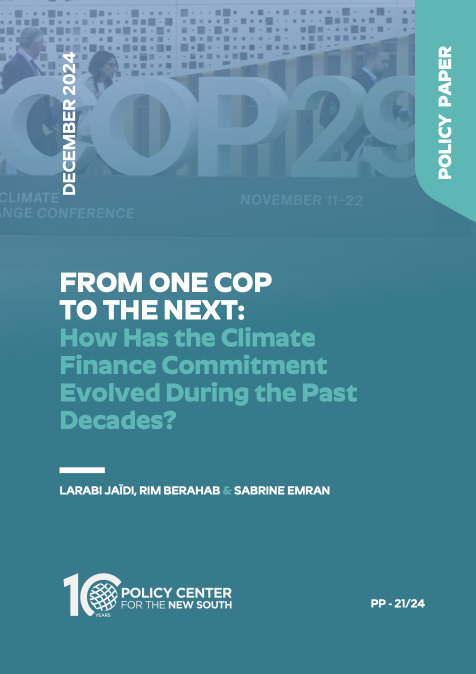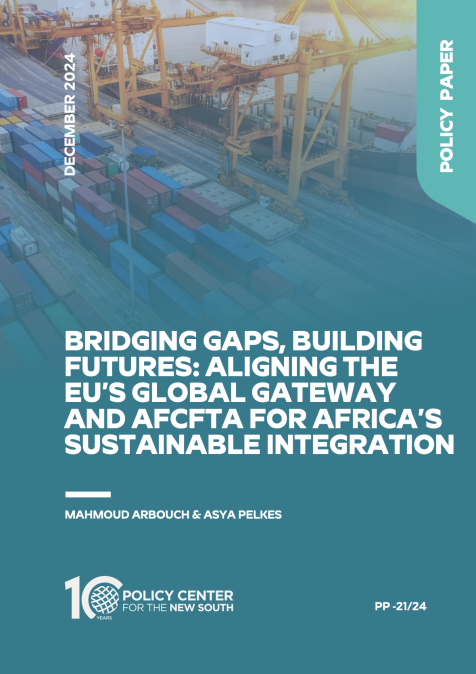Réforme du système monétaire international
Président
- Anoop Singh, Distinguished Fellow, Centre pour le progrès social et économique (CSEP)
Introduction
- Michel Camdessus, ancien directeur général, Fonds monétaire international (FMI) - En ligne
Discutants
- Masood Ahmed, Président, Center for Global Development (CGD)
- Jean-Claude Kassi Brou, Gouverneur, Banque centrale des Etats d'Afrique de l'Ouest
- Pablo Garcia Silva, Vice-gouverneur, Banque centrale du Chili
- Julio Velarde, gouverneur, Banque centrale du Pérou (BCRP)
- François Villeroy de Galhau, gouverneur, Banque centrale de France (BdF)
- Hiroshi Watanabe, président de l'Institut pour les affaires monétaires internationales (IMAI)
Remarques de clôture
- Bernard Snoy, président de l'association Robert Triffin International (RTI)
Discours d'ouverture
Introduit par
- Harinder Kohli, directeur fondateur et directeur général, Emerging Markets Forum (EMF)
- François Villeroy de Galhau, Gouverneur, Banque centrale de France (BdF)
RELATED CONTENT
-
 AuthorsDecember 20, 2024This Paper was originally published on geopolitique.eu In an era of unprecedented global interconnectedness, developing countries face an increasingly complex and often hostile economic landscape. This landscape is shaped by three main groups of policy constraints. First, the rise among major powers of protectionist tendencies has made the global environment more challenging, particularly as advanced economies increasingly turn to industrial policies to achieve specific economic ob ...
AuthorsDecember 20, 2024This Paper was originally published on geopolitique.eu In an era of unprecedented global interconnectedness, developing countries face an increasingly complex and often hostile economic landscape. This landscape is shaped by three main groups of policy constraints. First, the rise among major powers of protectionist tendencies has made the global environment more challenging, particularly as advanced economies increasingly turn to industrial policies to achieve specific economic ob ... -
 AuthorsDecember 20, 2024Ce papier a été initialement publié sur legrandcontinent.eu Alors que le monde n’a jamais été si interconnecté, les pays en développement sont confrontés à un paysage économique de plus en plus complexe et souvent hostile, façonné par trois grands groupes de contraintes politiques distinctes. Premièrement, la montée des tendances protectionnistes parmi les grandes puissances a rendu l’environnement mondial plus difficile, en particulier parce que les économies avancées se tourne ...
AuthorsDecember 20, 2024Ce papier a été initialement publié sur legrandcontinent.eu Alors que le monde n’a jamais été si interconnecté, les pays en développement sont confrontés à un paysage économique de plus en plus complexe et souvent hostile, façonné par trois grands groupes de contraintes politiques distinctes. Premièrement, la montée des tendances protectionnistes parmi les grandes puissances a rendu l’environnement mondial plus difficile, en particulier parce que les économies avancées se tourne ... -
AuthorsDecember 19, 2024This paper assesses the outcomes of COP29 in Baku, focusing on its achievements and shortcomings in advancing global climate governance. Key milestones included the adoption of the new collective quantified goal (NCQG), the tripling of climate finance commitments to $300 billion annually by 2035, and progress on Article 6 carbon markets to mobilize international cooperation and finance. However, finance remains insufficient to meet the needs of developing countries, and unresolved i ...
-
AuthorsAsya PelkesDecember 19, 2024The European Union’s (EU) Global Gateway initiative, established to enhance global connectivity and sustainable infrastructure, offers a significant opportunity to align with Africa’s development goals under the African Continental Free Trade Area (AfCFTA). However, the challenge lies in whether the Global Gateway can effectively complement AfCFTA’s objectives of boosting intra-African trade and industrialization by addressing critical infrastructure gaps. This paper examines how th ...
-
Lula at Midterm: The G20 Summit in Brazil at the Intersection of Domestic and Foreign Policy AgendasAuthorsNizar MessariDecember 18, 2024The G20 Summit held in November 2024 in Rio de Janeiro, Brazil, under the Brazilian G20 presidency, showed what decentering from the Western agenda and Western domination of world politics could mean. The summit’s main achievement was the constitution of an Alliance against Hunger and Poverty, with a membership of, and funds mobilized from, not only all G20 members, but also from more than 60 other countries. In fact, what the West showed was discomfort at not having its agenda, its ...
-
AuthorsForeword by Karim El Aynaoui (PCNS), Paolo Magri (ISPI), Samir Saran (ORF)December 14, 20242024 marked the largest election year in history, with millions of people across the world going to the polls to elect their representatives and leaders. However, in the Global North, Donald Trump’s decisive election victory in the United States threatens to undermine multilateral governance structures that are already under strain. In the Global South, emerging economies from the expanded BRICS group and beyond strive to speak with a single voice, and their actions continue to be s ...
-
 AuthorsZakaria ElouaourtiDecember 8, 2024This paper was originally published on accscience.com The Coronavirus disease 19 (COVID-19) pandemic has significantly affected the global workforce, with certain occupational groups facing greater challenges than others. Atypical part-time, temporary, and gig job workers are among the most vulnerable. This paper first examines the impact of the COVID-19 health crisis on atypical/ contingent workers by firm size, industry, and region. Second, we explore the factors determining the ...
AuthorsZakaria ElouaourtiDecember 8, 2024This paper was originally published on accscience.com The Coronavirus disease 19 (COVID-19) pandemic has significantly affected the global workforce, with certain occupational groups facing greater challenges than others. Atypical part-time, temporary, and gig job workers are among the most vulnerable. This paper first examines the impact of the COVID-19 health crisis on atypical/ contingent workers by firm size, industry, and region. Second, we explore the factors determining the ... -
AuthorsBoglarka BozsogiDecember 6, 2024Communities around the Lake Chad Basin (LCB) rely on three major economic activities: farming, fishing, and livestock herding. The floods that began in August 2024 damaged and destroyed hundreds of thousands of hectares of farmland, killed thousands of livestock, and rendered fishing unsafe for fishermen. This climate shock caused families dependent on these activities to lose their primary sources of income. Worse still, these economic activities also serve as the main source of da ...
-
Rim Berahab & Hung TranDecember 02, 2024The global energy transition is unfolding amid escalating geopolitical tensions, record-breaking temperatures, and trade wars. This podcast examines the U.S.-China rivalry over critical m ...
-
 AuthorsDecember 2, 2024This blog was originaly published on orfonline.org. The maritime industry is the lifeblood of global trade, with ships carrying over 90 percent of all merchandise trade, and the global logistics market accounting for 8-12 percent of global gross domestic product (GDP). The smooth functioning of maritime trade and supply chain logistics is integral to economic development and critical to food security and the distribution of essential supplies. In fact, the COVID-19 pandemic has ...
AuthorsDecember 2, 2024This blog was originaly published on orfonline.org. The maritime industry is the lifeblood of global trade, with ships carrying over 90 percent of all merchandise trade, and the global logistics market accounting for 8-12 percent of global gross domestic product (GDP). The smooth functioning of maritime trade and supply chain logistics is integral to economic development and critical to food security and the distribution of essential supplies. In fact, the COVID-19 pandemic has ...







